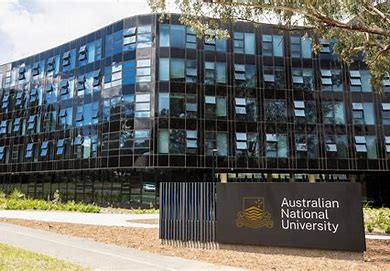Australian National University
Overview
The Australian National University (ANU) is a public research university and member of the Group of Eight, located in Canberra, the capital of Australia. Its main campus in Acton encompasses seven teaching and research colleges, in addition to several national academies and institutes.
Established in 1946, ANU is the only university to have been created by the Parliament of Australia. It traces its origins to Canberra University College, which was established in 1929 and was integrated into ANU in 1960. ANU enrols 13,329 undergraduate and 11,021 postgraduate students and employs 4,517 staff. The university’s endowment stood at A$1.8 billion as of 2018.
ANU counts six Nobel laureates and 49 Rhodes scholars among its faculty and alumni. The university has educated the incumbent Governor-General of Australia, two former prime ministers, and more than a dozen current heads of government departments of Australia. The latest releases of ANU’s scholarly publications are held through ANU Press online.
History
[edit]
Post-war origins
[edit]
Calls for the establishment of a national university in Australia began as early as 1900.[20] After the location of the nation’s capital, Canberra, was determined in 1908, land was set aside for the ANU at the foot of Black Mountain in the city designs by Walter Burley Griffin. Establishment of the university was disrupted by World War II but resumed with the creation of the Department of Post-War Reconstruction in 1942, ultimately leading to the passage of the Australian National University Act 1946 by the Chifley government on 1 August 1946
Australian National University (ANU) Course Offerings
The Australian National University (ANU), located in Canberra, is Australia’s premier research university, known for its rigorous academic programs and commitment to addressing global challenges through innovative research and education. ANU offers a diverse range of undergraduate and postgraduate courses designed to prepare students for leadership roles in the world.
Faculties and Areas of Study
ANU offers courses across seven academic colleges, each providing a comprehensive range of programs in specialized fields:
- College of Arts and Social Sciences: Courses in anthropology, political science, philosophy, and international relations.
- College of Business and Economics: Programs in economics, finance, business administration, and entrepreneurship.
- College of Engineering and Computer Science: Leading courses in data science, software engineering, renewable energy, and robotics.
- College of Health and Medicine: Specializations in public health, biomedical science, nursing, and medicine.
- College of Law: Undergraduate and postgraduate courses in commercial law, environmental law, and international law.
- College of Science: Programs in physics, chemistry, astronomy, and environmental science.
- College of Asia and the Pacific: Offers interdisciplinary programs in Asian studies, Pacific studies, and development studies.





